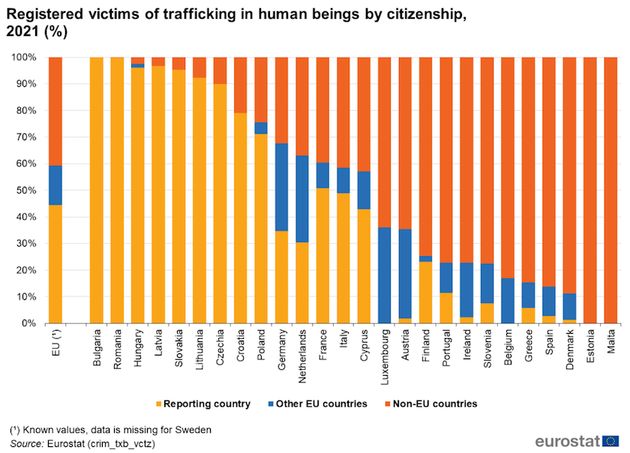The directive “adds new crimes”, which include surrogacy for the purposes of reproductive exploitation. It will now be negotiated with the European Council.
![Photo: [link] Solen Feyissa[/link], Unsplash CC0.](https://cms.evangelicalfocus.com/upload/imagenes/652fb4773fa5e_solenfeyissa940.jpg) Photo: [link] Solen Feyissa[/link], Unsplash CC0.
Photo: [link] Solen Feyissa[/link], Unsplash CC0.
The European Union aims to tighten regulation against surrogacy by adding it to a directive to fight human trafficking, which was passed in the first instance by the European Parliament.
The directive “adds new categories of crimes into the existing EU framework”, which include forced marriage, illegal adoption, the exploitation of children in residential institutions, and surrogacy for the purposes of reproductive exploitation.
The text was adopted by the Women's Rights and Gender Equality Committee and the Civil Liberties, Justice and Home Affairs Committee, with 69 votes in favour, 22 abstentions and none against.
The next step is its negotiation in the European Council, before returning to Parliament, which was approved with 86 votes in favour, four abstentions and none against.
The inclusion of so-called “surrogate wombs” in the regulation on human trafficking is supported by different groups across the political spectrum, such as conservatives and social democrats. On the other hand, the liberals are against it.
According to Spanish Co-rapporteur for the Women’s Rights and Gender Equality Committee Eugenia Rodríguez Palop (left party, Unidas Podemos), “the current directive has been essential in the fight against human trafficking. Nevertheless, after 12 years, there are challenges and gaps that we need to urgently address so as not to let down victims”.
“MEPs want to strengthen the investigation and prosecution of the crime, improve the EU’s institutional framework, collect and harmonise data, and focus on victim-centred measures”, she added.
In May, the European Christian Political Movement, along with two MEPs, organised a conference on parenthood policies in the European Union, with a special focus on surrogacy.
The speakers stressed that this practice fuels abuse, human trafficking and the violation of the rights of vulnerable women and children.
They also described surrogacy as a new form of exploitation that takes advantage of women's bodies and appropriates the children they bear.
According to data presented by the European Parliament, at least 7,000 people are trafficked every year within the European Union.

Swedish Co-rapporteur for the Civil Liberties, Justice and Home Affairs Committee Malin Björk (the Left) explained that “most of the victims in Europe are women and girls who are being bought and sold to be abused in Europe’s prostitution industry”.
“Parliament today took a powerful stance against this crime by calling for the criminalisation of the purchase of sex from victims of trafficking, and strengthening the rights and support for victims. It is a milestone in the fight against trafficking. I hope now to secure support for this strong legislation from member states”, stressed Björk.
October 18 is EU Anti-Trafficking Day and European Freedom Network (EFN), which unites 270 evangelical associations fighting human trafficking and exploitation who share a common Christian ethos are calling on people to sign up to this campaign.
[donate]

Las opiniones vertidas por nuestros colaboradores se realizan a nivel personal, pudiendo coincidir o no con la postura de la dirección de Protestante Digital.
Si quieres comentar o